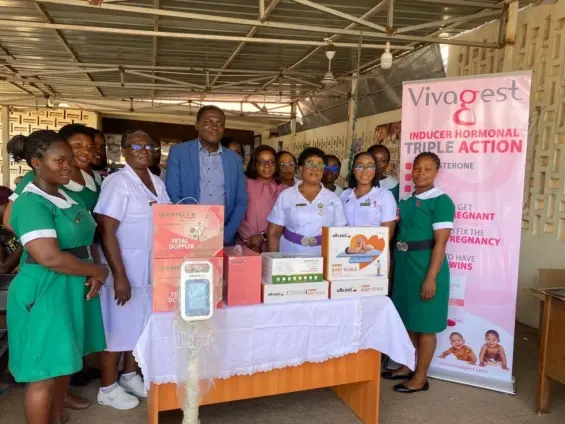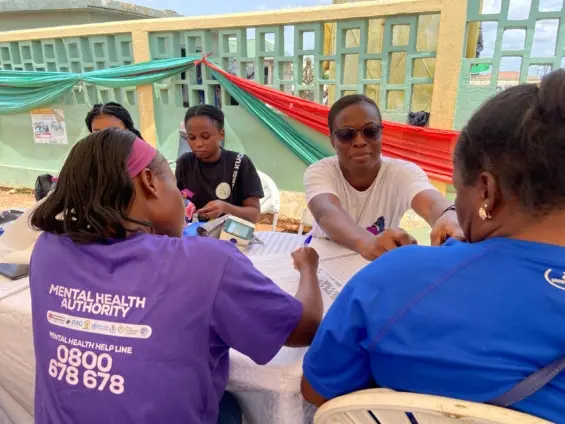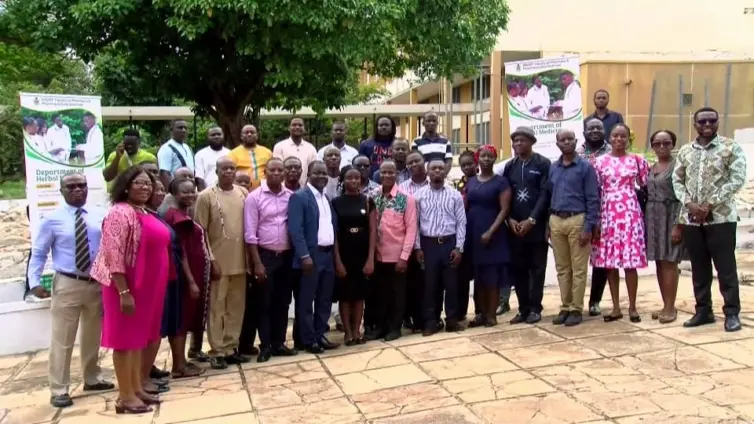In Kumasi, Ghana, a recent study by researchers at Kwame Nkrumah University of Science and Technology (KNUST) has uncovered a troubling connection: babies born to HIV-positive mothers face a significantly elevated HIV and Toxoplasmosis Risk for Babies. The research, published in the Journal of Science and Technology (JUST), reveals that nearly one in three infants born to mothers with HIV contract toxoplasmosis, a parasitic infection that can lead to severe health issues. This alarming statistic underscores the urgent need for enhanced prenatal screening and robust public health education initiatives, particularly focusing on toxoplasmosis prevention within high-risk populations. The study highlights the increased vulnerability of infants born to mothers with compromised immune systems, calling for immediate action to mitigate potential long-term health complications and proactively safeguard the well-being of newborns in Ghana.
The KNUST study revealed that infants born to HIV-positive mothers are at a considerably higher risk of *Toxoplasma gondii* infection compared to those born to HIV-negative mothers. Toxoplasmosis, which can be transmitted during pregnancy, poses serious health risks, including vision loss, brain damage, and developmental delays in children. The risk is particularly acute in women with weakened immune systems, such as those living with HIV.
According to the study’s findings, over half of the HIV-positive pregnant women examined had an acute *T. gondii* infection, with more than half of these cases resulting in transmission to their babies. In contrast, recent infections were less common among HIV-negative women, though transmission still occurred in half of those cases. Dr. Bhavana Singh, the lead researcher from KNUST’s Department of Clinical Microbiology, identified older age and unemployment as significant risk factors for infection among HIV-positive women. “Older age and unemployment were significant risk factors for infection among HIV-positive women,” Dr. Singh stated.
Genetic analysis conducted as part of the KNUST study confirmed that the toxoplasmosis strain circulating in Ghana is consistent with a common global variant found in regions such as Europe and North America.
While not all infected newborns showed immediate symptoms, the research team emphasized the critical importance of long-term monitoring, extending up to 10 years, due to the potential for complications to emerge later in childhood. This necessitates enhanced prenatal screening, particularly for high-risk groups, alongside increased public health education regarding toxoplasmosis prevention. The study authors include Dr. Bhavana Singh, Dr. Linda Batsa Debrah, Dr. Georgina Isabella Djameh, and Prof. Alexander Yaw Debrah.
The KNUST study brings critical attention to the serious threat of toxoplasmosis transmission to babies born to HIV-positive mothers in Ghana, highlighting the urgent need for comprehensive strategies to protect vulnerable infants. The research emphasizes the critical need for enhanced prenatal screening protocols, particularly targeting high-risk groups, and reinforced public health education initiatives concerning toxoplasmosis prevention. Given the potential for severe long-term health complications stemming from congenital toxoplasmosis, extended monitoring of infected newborns is paramount. By prioritizing these preventative measures, healthcare providers and public health officials can work to safeguard the health and well-being of vulnerable infants in Ghana and reduce the HIV and Toxoplasmosis Risk for Babies. Further research is needed to explore effective interventions and strategies to mitigate the risk and reduce the burden of this preventable infection.
Image Source: MYJOYONLINE





















